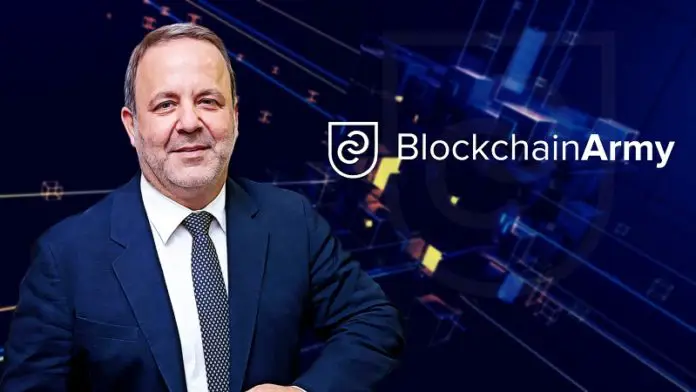
BlockchainArmy has evolved as one of the pioneers in pushing blockchain towards mainstream adoption. Spearheaded by chairman and co-founder Erol User, the global capital advisory and venture capital firm has made its mark with its exemplary work in popularizing blockchain technology. Continuing with the efforts to push blockchain adoption, Eorl User has been sharing his insights on the tremendous potential of blockchain technology on several global platforms.
Recently, Erol highlighted the advantages of introducing blockchain-based applications in supply chain management and logistics.
In today’s globalized world, goods are manufactured in different countries and used by consumers in different countries. This increases the complexity of supply chains; several documents, clearances, etc. are required across several countries. A single missing document can keep a cargo at a port for days. It is also important to keep records of all the documents submitted for every deal as the parties may need to consult them in case of any conflict. To ensure proper documentation and cut down delays, blockchain technology is being adopted to supply chain management.
Problems With Current Supply Chain Management Practices
Erol expressed that previously supply chain management was relatively simple as goods were produced and consumed within the country. Due to globalization and technological developments, the supply chains have become way more complex. The shift to transport goods by trucks instead of rail and the advent of computers has also changed the supply chains. As the global business grows, the plethora of documents has made it important to devise new systems. As China has become the hub of manufacturing, many countries source goods from it. To keep track of various documents, inspections, rejections, prices, discounts have become a monumental task.
Moreover, customers have become very conscious of the source of the products that they consume. Current supply chains cannot give a complete record of the lifecycle of a product to the customers. It is also very difficult to verify the claims made about the authenticity of a product. Due to the lack of transparency, it becomes difficult for manufacturers to predict when consumers will require certain goods.
Blockchain to The Rescue
A blockchain is a distributed digital ledger and each validator maintains a separate copy of the distributed ledger. Transactions are only recorded on a blockchain after it is validated by multiple validators. Thus, the blockchain is very transparent.
Transactions are recorded in different blocks. Any change in a transaction will require the approval of all the validators again. Thus, transactions recorded on blockchain cannot be erased. This is very helpful in resolving conflicts.
Blockchain is a very secure technology. Smart contracts can be written on a blockchain for storing different records as well as for making payments.
Blockchain maintains a single record of all transactions, which is visible to all the stakeholders. This prevents duplication and misrepresentation of records, which increases trust among the supplier, transporter and buyer.
All the factors mentioned above make blockchain ideal for all elements of a supply chain like warehousing of goods, delivery, payments, etc.
Use Cases Of Blockchain In Supply Chain Management
Blockchain is the underlying technology behind cryptocurrency, which cuts out banks and other intermediaries. Blockchain consulting company BlockchainArmy chief mentioned about Australian vehicle maker Tomcar makes payments to its suppliers across the world in Bitcoin. This ensures that the transactions are faster and cheaper.
Due to environmental pollution, consumers have become concerned about the source and lifecycle of food products that they consume.
DeBeers procures pork from China. It uses a blockchain to prsovide details like the facility from where the pork came, when it was processed, how long it has been stored, and its expiry date. Other food-industry companies like Unilever, Nestle, Dole, and Tyson also use blockchain for their products.
Mining firm BHP Billiton will use blockchain to record the entire data of the mining process with its vendors. This will allow it to track exactly how much amount is due to each vendor and will make the whole payment process transparent.
Erol also mentioned Project Provenance which provides blockchain infrastructure for companies to record the lifecycle of their products. Consumers can verify whether the companies they support are environmentally or ethically conscious or not.
The issue of blood diamonds has come to the fore in recent years and consumers have demanded to know whether the diamonds they buy are sourced from conflict zones. To address this, DeBeers has developed a blockchain to record the lifecycle of a diamond from the time it is mined to when it is sold. Start-ups like Cloud Logistics are working to provide blockchain-based solutions for addressing the complexities in supply chain management.


